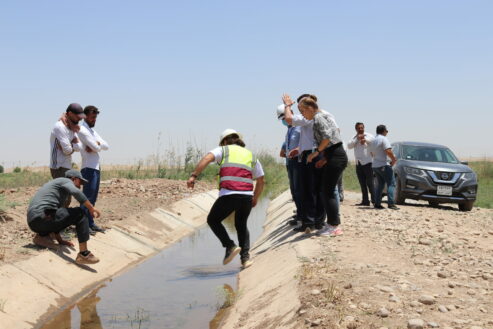Durable Solutions to the Protracted Humanitarian Crisis in Iraq
Four years after the end of large-scale military operations against ISIL, the humanitarian context in Iraq remains fragile. Prone to political instability, violence, corruption, armed conflict and natural disasters, Iraq is an anomaly of an upper middle-income country at “very high risk” and requiring international assistance. Protracted displacement has come to characterize the post-conflict environment, with eroded national social cohesion, extensive explosive ordnance contamination, and incomplete rehabilitation of housing, basic services and livelihoods opportunities. About 1.2 million people remain internally displaced, more than 90 per cent of whom fled their areas of origin more than four years ago. Protracted displacement is expected to continue over the next few years. Barriers to return, local integration or resettlement remain significant.

Climate change is a growing threat in Iraq. According to the UNEP (2022), Iraq has been ranked at the 5th most affected country by climate change in the world. Temperatures are soaring to new extremes as degrees above 50°C are becoming common, compounding the situation further into a complex humanitarian crisis. Water scarcity is forecasted to significantly impact this season’s crop production, which could further impact people’s livelihoods and food security status as well as increase the risk of cholera or other diseases. Climate-induced migration has already been witnessed in the worst-hit parts of the country.
ACT Iraq Forum members LWF and HIA will respond to the protracted crisis with an appeal to raise USD3,104,757 over two years, to improve access to durable solutions to the crisis-affected populations (IDPs, refugees, returnees and host communities) in Iraq.
From the assessment that was conducted, the identified need that HIA wishes to focus on is food security, emergency livelihoods and the eminent effects of climate crisis. The country’s agricultural sector relies on a network of outdated and degraded canals and irrigation systems, which leads to water waste through inefficient irrigation techniques, evaporation, and leaky infrastructure. Issues regarding climate resilience, the management of natural resources, and environmental protection, including risk and disaster management need to be addressed.

